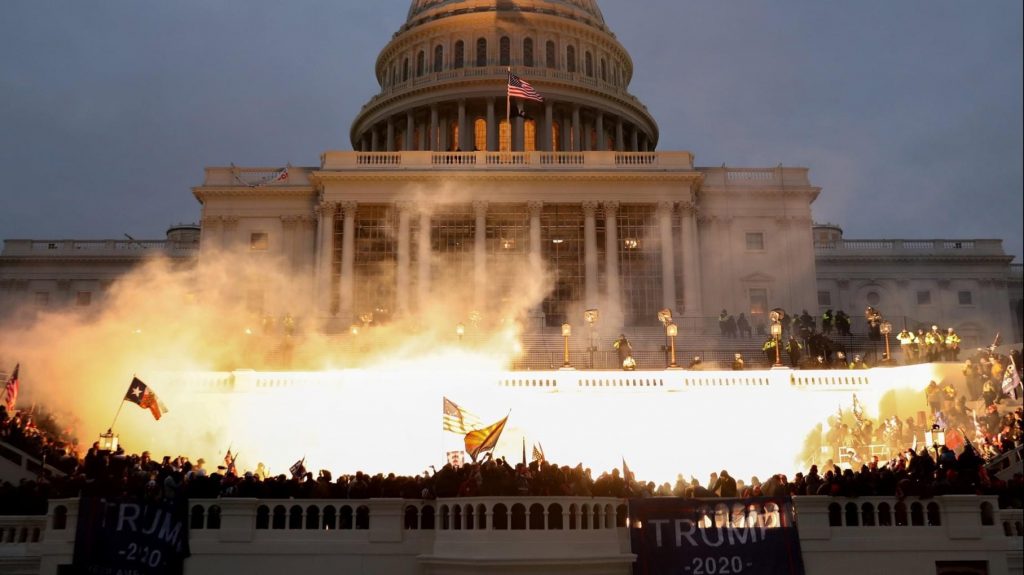
Words are powerful and can influence large groups of people. On Jan. 6, 2021, a violent attack on the Capitol broke out after former president Donald Trump encouraged his supporters to “stop the steal” of the election. “If you don’t fight like hell, you’re not going to have a country anymore,” he told a fired-up and angry crowd.
Trump’s language aimed at overturning the election was a rallying cry for voters that resulted in multiple deaths and millions of dollars in damages. As America approaches the one-year anniversary of Jan. 6, a communication faculty member who studies political rhetoric reflects on what led to an insurrection and what has changed about political rhetoric over the last year.
“Political rhetoric has not changed since the riot at the Capitol last January,” Jennifer Mercieca, a professor in the Department of Communication said. “We still see our public discourse riddled with conspiracy about the election, we still see extreme polarization, and we still see distrust of our political opposition as an enemy who cheats.”
Mercieca explained that politicians have been using war rhetoric the past few years: the same kind of language that has led to wars between nations or groups. The features of war rhetoric are: ad hominem attacks (attacking the person instead of their argument as a way to delegitimize them), reification (treating people as objects or animals as a way to signal they are less than human and do not deserve to live or be treated as equals), and ad baculum (threats of force or intimidation as a way to silence or scare the opposition).
“All of this war rhetoric amounts to what is called ‘stochastic terrorism,’ which is a way of explaining that we don’t know who precisely will act on the war rhetoric, but we know that someone will,” Mercieca said. “It’s very dangerous. Experts in democratic erosion cite this war rhetoric as one of the reasons that America’s democracy is ‘backsliding’ or in danger.”
The repeated use of polarizing and emotive words that signal the “in group” versus the “out group” threatens the democratic process by casting doubt on the democratic process while also inciting violence as an acceptable means to address it. A recent Washington Post-University of Maryland poll revealed that 34% of Americans said violent action against the government is justified at times, which is a significantly higher percentage than past polls.
“Democracy requires trust,” Mercieca said. “Trust is the belief that no one will violate your vulnerability. Our public sphere is saturated with stories of how and why we are vulnerable and how politics is ‘war’ and the ‘enemy’ cheats. We are told constantly not to trust one another or our government. These kinds of messages are very dangerous for democracy.”

